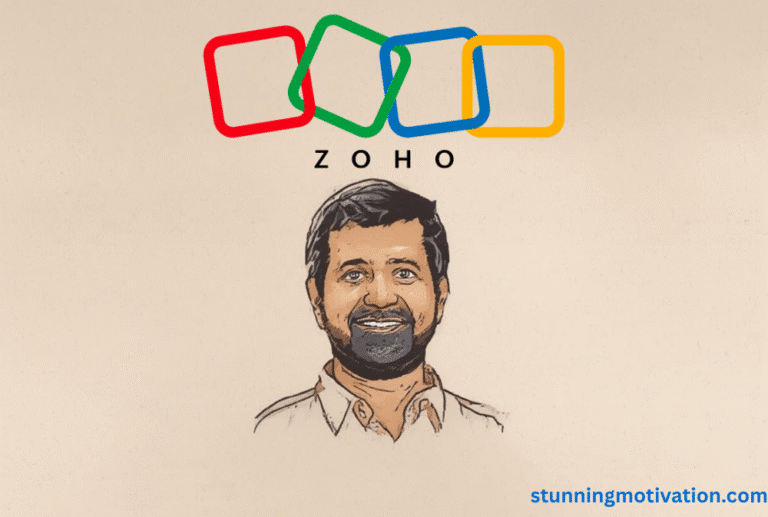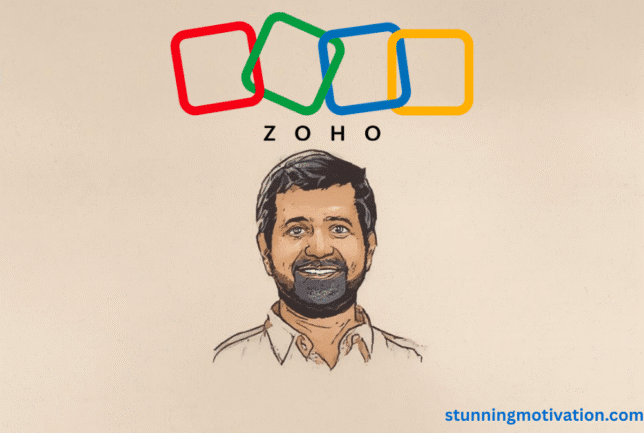How can you tell if the goals you set are too small?
I believe you have heard it many times over, you want to set big goals. You want to have exciting goals that drive you, not puny and small goals that don’t inspire you.
Here’s a famous quote from Marianne Williamson:
“Our deepest fear is not that we are inadequate. Our deepest fear is that we are powerful beyond measure. It is our light, not our darkness that most frightens us. We ask ourselves, ‘Who am I to be brilliant, gorgeous, talented, fabulous?’ Actually, who are you not to be? You are a child of God. Your playing small does not serve the world. There is nothing enlightened about shrinking so that other people won’t feel insecure around you. We are all meant to shine, as children do. We were born to make manifest the glory of God that is within us. It’s not just in some of us; it’s in everyone. And as we let our own light shine, we unconsciously give other people permission to do the same. As we are liberated from our own fear, our presence automatically liberates others.”
Your playing small does not serve the world. And you can achieve anything you want in this world. Never let your fear stops you from living your life to the fullest.
And when you dream big and set big goals, your actions will automatically inspire others to do the same.
Think about SpaceX. This is a company that has inspired people to want to work there. They have big and bold dreams – to allow interstellar possible for everyone.
When your goals are big and bold, you will inspire others to want to join you, work for you, and become your alliances to support you in achieving your goals.
And this is why you do not want to play small. But, how do you know if your goals are too small?
Well, here are the 5 telltale signs…
1. You Don’t Feel Excited About Your Goals

Be honest, do you feel excited whenever you think about your goals? If you don’t, chances are, your goals are too small.
Big goals are inspiring. They are challenging and exciting. They will drive you and motivate you to achieve them whenever you think about them.
John loves to play tennis. He represents his school and plays at the local competitions. But when you ask him about becoming a professional player and joining the internal competitions, he says it is impossible for him because his skills are limited.
Now, think about professional tennis players like Roger Federer, Novak Djokovic, or Andre Agassi. These tennis superstars are the spotlight of the sport. They have millions of fans and people are coming from all over the world to watch them play. They inspired millions and they also earned millions.
Can you see the difference between having a big goal VS having a small goal?
Big goals are exciting, meaningful, and they will inspire you every time when you think about achieving them.
On the contrary, small goals are dull, boring, and they don’t inspire you to take action.
For instance, think about these 2 scenarios:
- #1 – You’re going to take a day off and enjoy your time at a local Starbucks, versus…
- #2 – You’re going to spend 7 days in Hawaii, spending 6 nights at the 5-star Montage Kapalua Bay resort. You’re going to visit Jurassic Park and take a helicopter tour to view the breathtaking sight of Na Pali Coast Wilderness Park from above. And also, You will enjoy the sea breeze at Waikiki Beach while sipping the famous rainbow cocktail.
Now tell me, which of the scenario above is more exciting to you? And which one do you want to have?
The answer is obvious. Why? Because one is a small boring goal that can be easily accomplished, and another is a big, challenging, and exciting goal that drives you.
Hence, if your goals are not exciting and they do not inspire you to want to take massive action, then most likely they are too small.
Read: 7 Ways How to Think Big to Achieve Big Success in Life
2. Your Goals Are Not Life-Changing

Imagine you receive a 1% pay increase. How is that going to impact your life?
If you are earning $10,000 a month, a 1% pay raise means you’re getting an additional $100 per month. Now, is that life-changing? Obviously not. Because that’s a small goal.
Now, what if you receive a 10% pay increase? Is that going to change your life? That means you are earning $1,000 more every month.
Well, that’s not life-changing, but it is good money to have. You get to have more disposable income to spend and invest.
Imagine what if you receive a 100% pay increase, is that life-changing? Yes, because you have just doubled your earnings. You can drive a better car, live in a better and bigger house, and travel in style.
But for some people, a 100% income increase is not life-changing. They are looking for more.
The key is not about how much you make, but the magnitude of your goals. You want to set big goals that are going to change your life.
Remember the saying from Marianne Williamson? “Your playing small does not serve the world.”
And since you’re going to set goals anyway, why don’t you think big and set big, life-changing goals, isn’t it?
If your goal is to $100 more when you are already earning $10,000 a month, it is not big enough. It is not life-changing enough.
If your goal is to close 10 sales when you are already closing 8 sales consistently every month, then it is not a life-changing goal. It is a small goal that doesn’t inspire or challenge you.
Thus, set bigger goals. How do you do that? Just apply the 10X principle. Make your goals 10 times bigger.
Read: How to Dream Big and Start Small
3. You Don’t Have to Push Yourself to Achieve Your Goals

Another clear sign that your goals are too small is that you don’t have to push yourself too hard to achieve them.
In short, you don’t have to venture out of your comfort zone to achieve them. You just need to work slightly more, and you can achieve your goals.
If this is your case, your goals are too small.
There are 2 types of goals:
- Incremental goals – These are small goals that you can achieve by just working slightly harder than you used to.
- Stretched/Transformative goals – These are big goals where you need to venture out of your comfort zone and do things differently.
And you want to make sure you set stretched or transformative goals.
I’m not saying that incremental goals are bad, or you should totally ignore them. But I’m saying of all your goals, you need to have stretch goals that push you out of your comfort zone.
Elon Musk once said…
“Stop being patient and start asking yourself, ‘how do I accomplish my 10 years plan in 6 months?’ You will probably fail but you will be lot further ahead of the person who simply accepted it was going to take 10 years.”
4. No One Gets Inspired When You Tell Them About Your Goals

That’s right, one of the easiest ways to find out if your goals are too small is to ask someone about them, and then notice their reactions.
When you tell someone about your goal and he doesn’t feel excited about it, most probably your goal is too small. And that’s why it can’t inspire people.
Think about companies like Google, Cisco, and Salesforce. Why do you think these companies are popular and people want to work there?
Well, because these companies have a big and bold vision. In other words, these companies have big and life-changing goals. And that’s why they inspired people to want to work there.
In 1983, Steve Jobs asked Pepsi President John Sculley a question that changed his life forever. This was the question:
“Do you want to sell sugar water for the rest of your life, or do you want to come with me and change the world?”
Jobs managed to inspire Sculley and recruited him to Apple. Again, big and bold goals have the power to inspire and change lives.
So, when you tell your friends about your goals and your plan, if they don’t feel inspired at all, then you know your goals are too small.
Read: Why Think Big? 6 Reasons That Will Blow Your Mind
5. You Can Easily Achieve Your Goals

Yes, that’s right, this is the most straightforward sign. If you can easily achieve your goals, then that means your goals are too small. You should set something bigger.
You just need to be honest and ask yourself, “Is this goal too small for me? Can I easily achieve them?”
If your answer is a yes, then you know you are setting small goals and you want to make changes.
There’s nothing wrong with setting small goals. But small goals usually don’t inspire you and they don’t motivate you to act.
What’s more, small goals cannot help you unleash your greatness within. The only way to know how good you are or how much potential you have is to challenge yourself to go big.
Just like if you are earning $5,000 a month, how do you know how much earning potential you have? The only way to find out is to challenge yourself to go big.
Set a goal to earn $20,000 rather than just $5,000 a month. Of course, you need to follow up with action steps. Don’t just set the goals or think about them but are not doing anything at all.
If you are earning a fixed salary of $5,000 a month, how can you double your income? Should you start a side hustle? Should you work on other projects during the weekend? Should you start a business? Or should you work harder and then ask your boss for a raise?
No matter your strategy, the key is to challenge yourself to go out of your comfort zone and do things that you have never done before.
When you challenge yourself to do things you have never done before, you are unleashing your inner greatness. You are being creative. You are expanding your potential to become someone better.
That’s why you want to set big goals, not just small goals.
If you want to learn how to set empowering goals, read this guide: 13-Step Plan How to Achieve Your Goals and Dreams
Shawn is a passionate coach who empowers individuals to achieve their goals and reach new heights of success. With his experience in the personal development industry, Shawn has guided countless people towards fulfilling their potential and achieving outstanding results in life. He has experience in the personal development industry for more than 7 years and has helped countless success seekers to achieve outstanding success in life. Learn more about him on Everydaypower.com or Goalcast.com





















